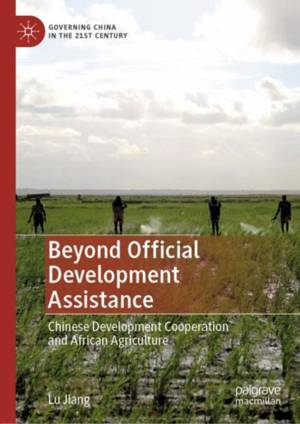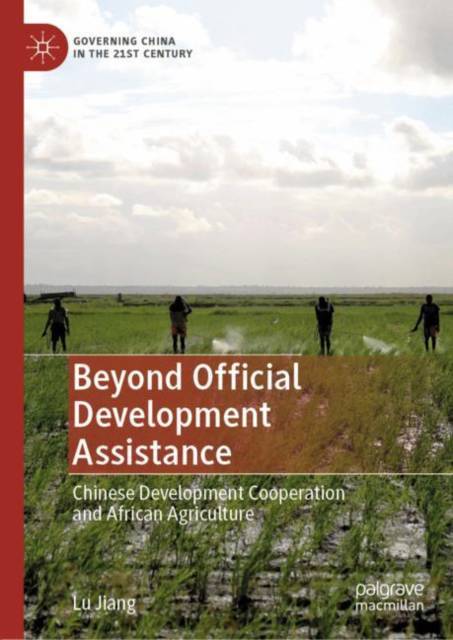
- Afhalen na 1 uur in een winkel met voorraad
- Gratis thuislevering in België vanaf € 30
- Ruim aanbod met 7 miljoen producten
- Afhalen na 1 uur in een winkel met voorraad
- Gratis thuislevering in België vanaf € 30
- Ruim aanbod met 7 miljoen producten
Zoeken
Beyond Official Development Assistance
Chinese Development Cooperation and African Agriculture
Lu Jiang
€ 152,95
+ 305 punten
Omschrijving
This book investigates China's contemporary development cooperation mentality and modality through the case of its agricultural engagement with Africa. It identifies three models, namely traditional agro-aid, innovative agro-aid and agribusiness models, of Chinese current agro-development cooperation with Africa, and unpacks the different models by tracing their historical origins and examining the actual practice based on project-level fieldwork conducted in Mozambique and South Africa. The book provides a preliminary and qualitative evaluation of China's current agro-development cooperation with Africa, and explains the 'implementation gaps' as observed on the ground adopting a public policy approach. It also compares the Chinese way of development cooperation with that of the traditional donors (particularly the OECD-DAC members), and calls for a broadening understanding for international development cooperation that can allow win-win ideology and embrace diversified cooperation forms beyond the official development assistance (ODA).
Specificaties
Betrokkenen
- Auteur(s):
- Uitgeverij:
Inhoud
- Aantal bladzijden:
- 273
- Taal:
- Engels
- Reeks:
Eigenschappen
- Productcode (EAN):
- 9789813295063
- Verschijningsdatum:
- 26/09/2019
- Uitvoering:
- Hardcover
- Formaat:
- Genaaid
- Afmetingen:
- 155 mm x 213 mm
- Gewicht:
- 498 g

Alleen bij Standaard Boekhandel
+ 305 punten op je klantenkaart van Standaard Boekhandel
Beoordelingen
We publiceren alleen reviews die voldoen aan de voorwaarden voor reviews. Bekijk onze voorwaarden voor reviews.











